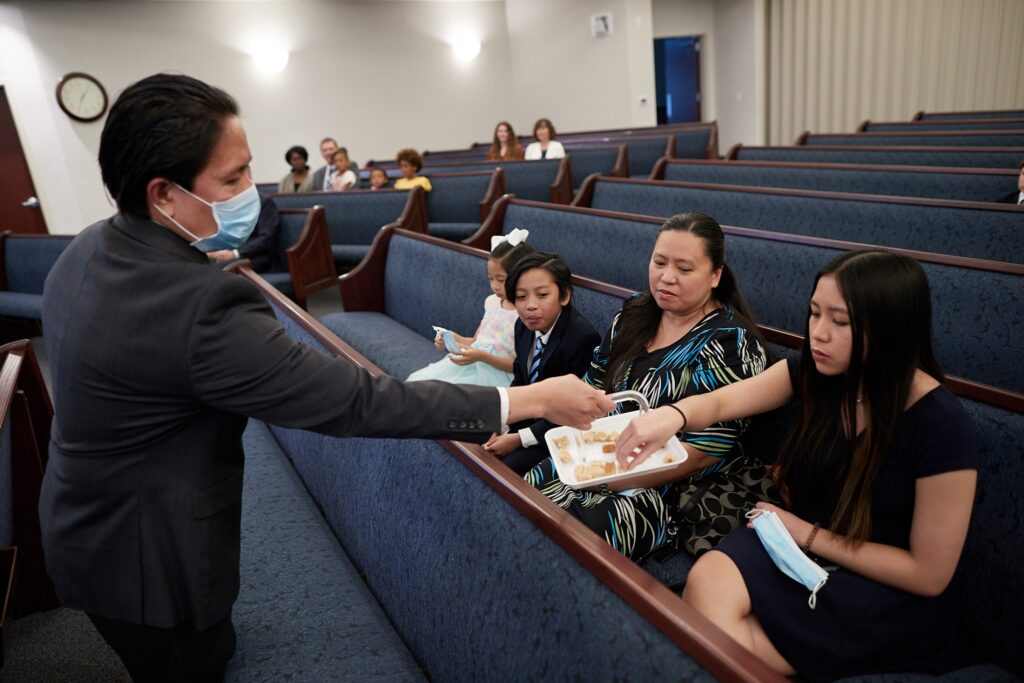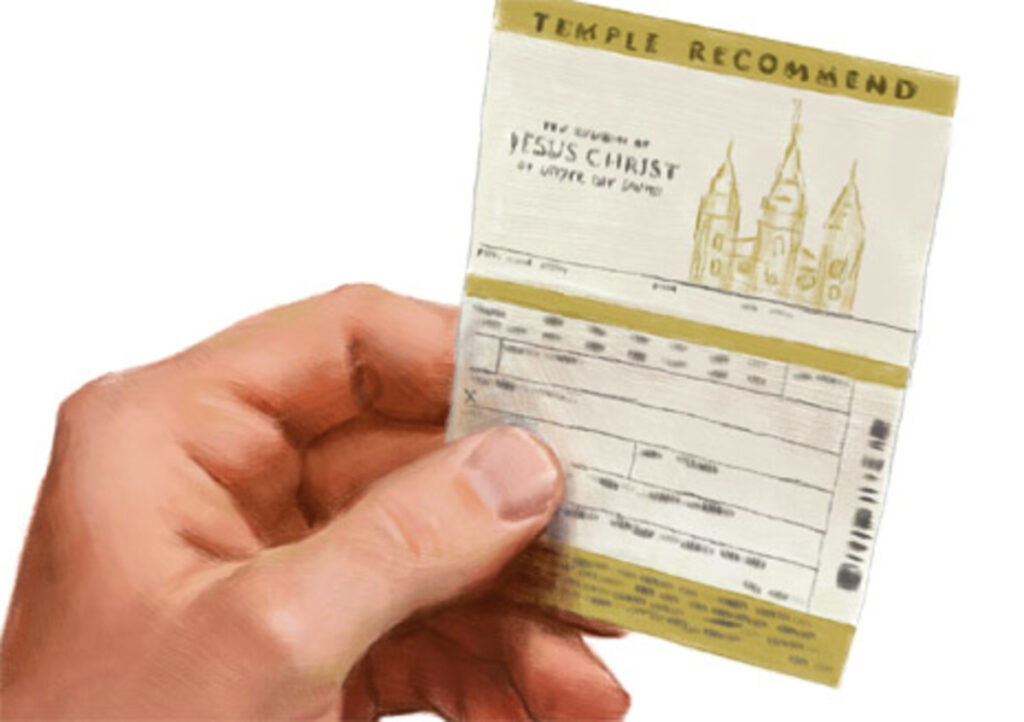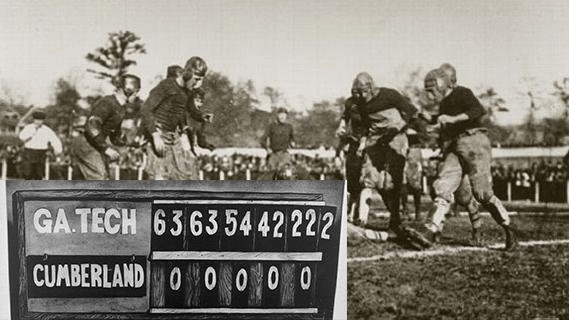Let me tell you about my 5th birthday party. It is one of the very few things I remember from when I was five, probably because of how traumatic it was. I think it was the only time I ever had a birthday party with friends invited from outside the family. It started off great. People were showing up with presents in their arms—for me! It was every five year old’s dream. One of the most exciting gifts was a toy battleship, which evidently could actually float. I could hardly wait for the party to finish so I could play with it. But after the games were ended and the ice cream and cake eaten, and as my friends began to leave, to my horror, the little girl who had given me my battleship wanted to take it home with her! Happily for me, her mother intervened. I have no memories of actually playing with the battleship or how much fun it may have been. But I will never forget the absurdity that someone would want to give herself a present—on my birthday!

I think you can see where this is leading. We can excuse a five year old’s wanting to give himself or herself a gift on someone else’s birthday. But It has, amazingly, become an epidemic among adults around the world! Since before Halloween stores have been full of merchandise for customers to buy to give to themselves or to each other. Virtually nothing is on display to give to Him whose birthday it is.

What if it had been this way 2000 years ago? The Christmas story might have read differently. Matthew tells us that following the birth of Jesus, wise men from the east came from afar to bring gold, frankincense, and myrrh. They likely came from the Persian Empire and arrived as long as 1-2 years after Jesus’ birth, when Jesus was a young child in a house, not a baby in a manger. Legend has added that there were three of them, that they were kings, and even tells us their names were Gaspar, Balthasar, and Melchior. As long as we’re dealing with legends about the wise men, why don’t we go a step further and make it easier for them? How about this, from the apocryphal Book of Cazier:
“Now when Jesus was born in Bethlehem of Judea in the days of Herod the king, behold, there were three wise men from the east who considered traveling to Jerusalem to present him gifts of gold, frankincense, and myrrh. But behold, Gaspar said to Balthasar and Melchior, “Verily, verily, Jerusalem is exceedingly far from here. Behold, let us meet instead in my home with our wives and children, for a great Christmas party. And so they did. They ate, drank, and were merry. And Gaspar gave Balthasar a box with rich frankincense. Balthasar, not to be outdone, presented Melchior with a box filled with pure gold. And Melchior, for his part, gave Gaspar his whole supply of myrrh. And behold, they made it an annual tradition forever after.”
I’m grateful that this account is purely fictional and that the real wise men, whoever and however many there were, went out of their way hundreds of miles over rugged terrain, probably over at least several months’ time, to give their gifts to their Savior, not to each other.

The cover of the December Family Circle magazine some years back announced that inside were “189 ideas for a real old fashioned Christmas.” Included were suggestions for no-bake gingerbread houses, how to stitch special Christmas cards, and make stained-glass wreaths. There were sock dolls to make in a jiffy and Christmas paperweights and creative ornaments. Next came sparkling Christmas gift wrap, Christmas brunch, window decorations, and hassle-free festive desserts, to name a few. For the little folks there was an attractively illustrated story in which the “real” Santa Claus visited a children’s Christmas party. Naturally, he arrived and left in his airborne, reindeer powered sleigh. And page after page advertised toys “guaranteed to make little kids merry.” After all, one of the ads concluded, “200 million happy kids can’t be wrong”! (By the way, who was it that said, “Broad is the way that leadeth to destruction, and many there be which go in thereat”?)

Perhaps in a token effort to placate the religious element the magazine included an article by Billy Graham on the Christmas angels who announced the Savior’s birth. But the vote ended up a lopsided 188-1 regarding what really mattered about Christmas. The message was clear that the “good tidings” heralded to the shepherds just don’t have what it takes to bring “great joy” in this more enlightened age.
Is it worth asking, “What is the ratio of the material to the spiritual in our own Christmas celebration plans?” As radio personality Paul Harvey regularly used to remind us, “It’s His birthday–not yours!” Will our celebration of Christmas mean we will have neither the time nor finances to pay much attention to the Savior for all of December and much of January?
Some of us may struggle with the idea of giving at all, as opposed to receiving. When we were little kids, that was expected. Few 5 year olds are going to lie awake on Christmas Eve grateful for all they’re going to be giving their brothers and sisters the next day. No! It’s all about what Santa is going to bring them!

But if we are still locked into what we’re getting for Christmas or how much fun we’ll have at our own Christmas celebrations or how much better our decorations are than our neighbors’, we really haven’t spiritually matured beyond the 5 year old point.

I had to relearn that some 35 years ago, when Virginia and I took my parents and a couple of our older kids to Mexico and Guatemala over the Christmas holidays. On Christmas Eve, we landed in the quaint little indigenous town in the highlands of southern Mexico called San Cristobal de las Casas. After getting settled into our hotel, we went out to explore the town. But I was put off by all the beggars on the street. I started to lead our group to the other side of the street to avoid them. I felt especially justified in my stinginess when I saw someone asking one of the beggars if he could make change, and he pulled out a very large wad of bills and happily did so! He had more money than I did! We finally returned to the hotel, but somehow, I didn’t feel much of the Christmas spirit. After some introspection, I realized what was missing. Virginia and I went back out onto the streets of San Cristobal—but this time, to look for beggars, with the intention of giving each of them at least something. Some of them may well have not deserved it. But what I do know is that I returned to our hotel feeling a great deal better inside than I had when we had left.

So, what are we willing to give Jesus for His birthday? Many of us wrestle with what to give someone who already has everything. In the case of Jesus, He really does! So, what can we give Him?

Fortunately, He has already told us what He wants. He told the Nephites, “Ye shall offer for a sacrifice unto me a broken heart and a contrite spirit.” And He told his Old World disciples, “If ye love me, keep my commandments.”
Soon after each Christmas, we usher in a new year. Next year has to be better than this one, right?

Actually, that will depend on us much more than on external circumstances. It will depend on whether or not we decide to give Jesus the gifts He has actually asked for. As Sister Michele Craig summed them up in the October 2020 general conference, it involves asking ourselves two questions:
What am I doing that I should stop doing?
What am I not doing that I should start doing?
If we’ve not been attending church as regularly as we should have, one resolution can be to start doing so. The Lord doesn’t ask us to make up for last year’s absences by attending two sacrament meetings a week this year—just that we start attending one.

Similarly, if we’ve not been paying tithing, a loving God doesn’t require us to make up all past unpaid amounts. For some, that might be impossible. Jesus Christ has already paid for our past sins of commission and omission, provided we repent. He simply asks that we start now and begin to enjoy the blessings that being a full tithe payer brings. I’m quite sure that if you paid faithfully and fully for three months, with a commitment to keep doing so, your bishop would be happy to sit down with you to discuss what else, if anything, you may need to do to qualify for a temple recommend.

I’m grateful for new beginnings. Sometimes we joke about New Year’s resolutions and how quickly we expect to break them. But I believe the Lord has included new beginnings as part of His plan for our happiness. Have you ever been in a game where you were losing 100 to nothing? If so, what did you hope could happen? Sure, that you could call an end to the game and start over.

That’s how we would always feel about life itself without the principle of repentance and the Lord’s offer of new beginnings. Each day has a night, with a new day ahead in which we can say, as we roll out of bed, I haven’t overeaten at all—yet! Every week comes to an end on the weekend and starts with a clean slate on Sunday, where we can renew our commitments to make the following week even better than the preceding one. Months and years also have both an end and a beginning. Isn’t it a bit refreshing to recognize that we’re all perfect, so far, in the year ahead?

Perhaps it is no coincidence that New Year’s Day comes so close to Christmas. It gives us an opportunity to give the only gift we really can give to the Savior as we commemorate His birth—our hearts, our love, and our commitment to obey Him and keep His commandments—in the year ahead, better than we did in the year which is coming to an end.

May I share with you with my witness that the baby born in Bethlehem is our Lord and the Savior of the world, which He created under the direction of His and our Father in Heaven. And I have discovered that as He taught, it is indeed more blessed to give than to receive—especially to give to Him who has given us all we have and all we ever hope to obtain.

